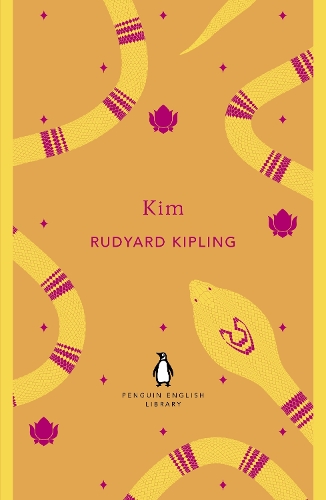
Kim
(Paperback)
Available Formats
Hardback
Published: 26th May 1995
Paperback
Published: 1st April 2010
Paperback
Published: 6th July 2011
Paperback
Published: 12th August 2011
Paperback
Published: 21st November 2012
Paperback, New edition
Published: 5th May 1994
Paperback
Published: 18th January 2011
Paperback
Published: 7th January 2020
Paperback
Published: 27th September 2016
Publishing Details
Kim
By (Author) Rudyard Kipling
Penguin Books Ltd
Penguin Classics
21st November 2012
25th October 2012
United Kingdom
Classifications
General
Fiction
823.8
Physical Properties
Paperback
336
Width 129mm, Height 198mm, Spine 15mm
234g
Description
The new paperback series- Penguin English Library 'He knew the wonderful walled city of Lahore from the Delhi Gate to the outer Fort Ditch; was hand in glove with men who led lives stranger than anything Haroun al Raschid dreamed of; and he lived in a life wild as that of the Arabian Nights ...' Kipling's epic rendition of the imperial experience in India is also his greatest long work. Two men - Kim, a boy growing into early manhood, and the lama, an old ascetic priest - are fired by a quest. Kim is white, although born in India. While he wants to play the Great Game of imperialism, he is also spiritually bound to the lama and he tries to reconcile these opposing strands. A celebration of their friendship in an often hostile environment, Kim captures the opulence of India's exotic landscape, overlaid by the uneasy presence of the British Raj.
Author Bio
Born in Mumbai (then Bombay) in 1865, Rudyard Kipling was taken to England in 1871 and lived for five years with a foster-family in Southsea before going to the United Services College in Devon. He returned to India in 1882 to work as a reporter, and the many poems, sketches and stories he wrote during his time there brought him great literary acclaim. Kipling married Caroline Balestier and moved temporarily to Vermont where he wrote the two Jungle Books. They and their three children travelled extensively, particularly in South Africa, and Kipling became a fierce proponent of the Boer War. Identifying from the outset with the rulers and officials of the British Empire, Kipling nonetheless refused a knighthood, British Poet Laureateship and Order of Merit. He won the Nobel Prize in 1907, six years after publication of Kim, his masterpiece. After the death of his son John at the Battle of Loos in 1915 he became involved in the War Graves Commission. Kipling died in 1936, at the age of seventy.
